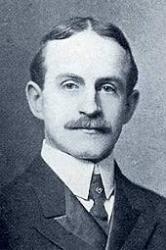Planning worship?
Check out our sister site, ZeteoSearch.org,
for 20+ additional resources related to your search.
- |
User Links
Search Results
I waited for the Lord my God
Appears in 65 hymnals Tune Title: ABBEY Topics: Life in Christ Prayer Scripture: Psalm 40:1-5 Used With Tune: ABBEY Text Sources: Scottish Psalter, 1650
I waited for the Lord my God
O Master of the loving heart
Author: Calvin W. Laufer Appears in 13 hymnals Tune Title: ABRIDGE Topics: Jesus Christ Life and Ministry Used With Tune: ABRIDGE
O Master of the loving heart
Praise waits for Thee in Zion
Author: Nichol Grieve Appears in 33 hymnals Tune Title: ABRIDGE First Line: Praise waits for Thee in Zion, Lord Topics: God His Providence and Care Scripture: Psalm 45 Used With Tune: ABRIDGE Text Sources: Scottish Psalter, 1650
Praise waits for Thee in Zion
ABERYSTWYTH
Appears in 254 hymnals Composer and/or Arranger: Joseph Parry Tune Key: e minor Incipit: 11234 53213 21712 Used With Text: Jesus, lover of my soul
ABERYSTWYTH
I waited for the Lord my God
Hymnal: MH1969 #302 (1969) Tune Title: ABBEY Topics: Life in Christ Prayer Scripture: Psalm 40:1-5
I waited for the Lord my God
Jesus, lover of my soul
Author: Charles Wesley Hymnal: MH1969 #237 (1969) Tune Title: ABERYSTWYTH Topics: Life in Christ Repentance and Forgiveness
Jesus, lover of my soul
Praise waits for Thee in Zion
Author: Nichol Grieve Hymnal: MH1969 #82 (1969) Tune Title: ABRIDGE First Line: Praise waits for Thee in Zion, Lord Topics: God His Providence and Care Scripture: Psalm 45
Praise waits for Thee in Zion
Joseph Parry

1841 - 1903 Tune Title: ABERYSTWYTH Hymnal Number: 237 Composer of "ABERYSTWYTH" in The Mennonite Hymnal Joseph Parry (b. Merthyr Tydfil, Glamorganshire, Wales, 1841; d. Penarth, Glamorganshire, 1903) was born into a poor but musical family. Although he showed musical gifts at an early age, he was sent to work in the puddling furnaces of a steel mill at the age of nine. His family immigrated to a Welsh settlement in Danville, Pennsylvania in 1854, where Parry later started a music school. He traveled in the United States and in Wales, performing, studying, and composing music, and he won several Eisteddfodau (singing competition) prizes. Parry studied at the Royal Academy of Music and at Cambridge, where part of his tuition was paid by interested community people who were eager to encourage his talent. From 1873 to 1879 he was professor of music at the Welsh University College in Aberystwyth. After establishing private schools of music in Aberystwyth and in Swan sea, he was lecturer and professor of music at the University College of South Wales in Cardiff (1888-1903). Parry composed oratorios, cantatas, an opera, orchestral and chamber music, as well as some four hundred hymn tunes.
Bert Polman
Joseph Parry
Calvin Weiss Laufer

1874 - 1938 Person Name: Calvin W. Laufer Tune Title: ABRIDGE Hymnal Number: 145 Author of "O Master of the loving heart" in The Mennonite Hymnal Presbyterian minister and hymnographer Calvin Weiss Laufer was born today in Brodheadsville, Pennsylvania in 1874. Following his graduation from Union Seminary in 1900 he was ordained into the Presbyterian ministry and led congregations in New York and New Jersey for several years.
Laufer had a generally cheerful outlook on his Christian life, and his first two books, Key-Notes of Optimism (1911) and The Incomparable Christ (1914) expressed that viewpoint. A review of the first book spoke of the "crisp and stirring note in these sermonettes which is well calculated to rouse the mind of readers and banish dejection." His books were popular in their time but today are seen as somewhat superficial.
He later began to work with the Presbyterian Board of Christian Education and became its editor of musical publications, producing books such as The Junior Church School Hymnal (1927), The Church School Hymnal for Youth (1928) and When the Little Child Wants to Sing (1935). He was also the associate editor of the Presbyterian Hymnal of 1933, a very popular book which was used in many churches for more than fifty years.
In 1932, his book Hymn Lore was published, which contained the stories of fifty hymns from The Church School Hymnal for Youth, with information about their writers and composers (much like this blog). He chose a broad range of hymns, some quite modern and others well-known and loved for centuries. Several of them were by his mentor and friend Louis F. Benson, who had edited the Presbyterian Hymnal of 1895 and its 1911 revision (and also wrote The Best Church Hymns). In the preface to Hymn Lore, Laufer wrote:
To live with hymns and to make them one's own is the only sure way of appreciating their literary beauty and spiritual power. (...) That the reading and singing of hymns may become less mechanical, more thoughtful and intelligent, and emotionally more effective, this volume is released to the public.
Laufer wrote both hymn texts and tunes himself, most of which first appeared in the books he edited but also had some life outside Presbyterian circles. This tune was written while Laufer was attending a conference in Kansas, though with no particular text in mind. Not long after, he hummed it to a friend, William H. Foulkes, who then wrote the text "Take thou our minds, dear Lord."
Laufer's tune was originally called STONY BROOK, but he changed it to honor a friend, William Ralph Hall. Little is known about the writer May Pierpont Hoyt. Her text is generally sung to the tune BREAD OF LIFE by William F. Sherwin, but since that tune is more known with "Break thou the Bread of life," this text could use a different one.
--conjubilant.blogspot.com/2010/04/
Calvin Weiss Laufer
Nichol Grieve
1868 - 1954 Tune Title: ABRIDGE Hymnal Number: 82 Alterer of "Praise waits for Thee in Zion" in The Mennonite Hymnal
Nichol Grieve


 My Starred Hymns
My Starred Hymns


